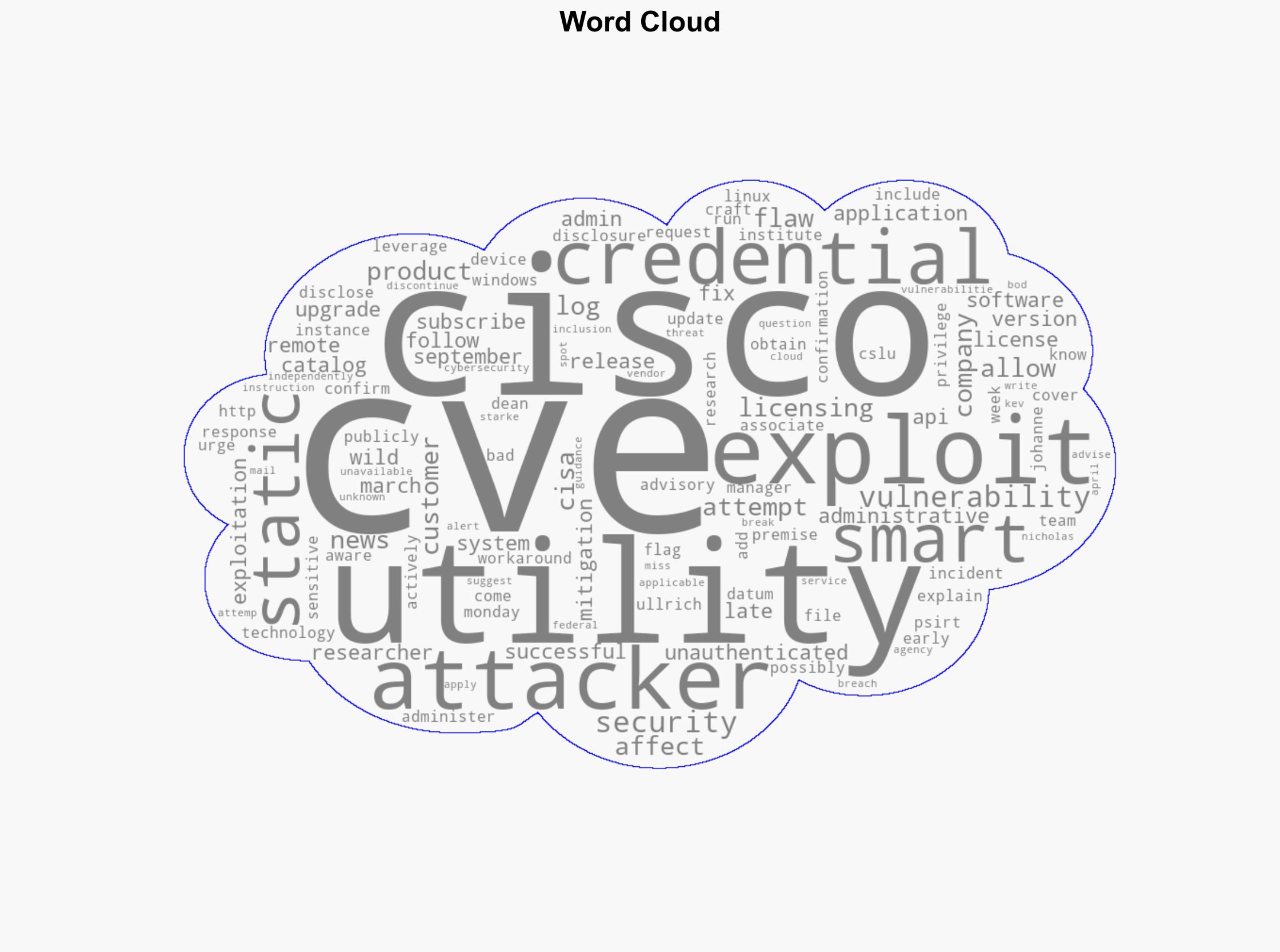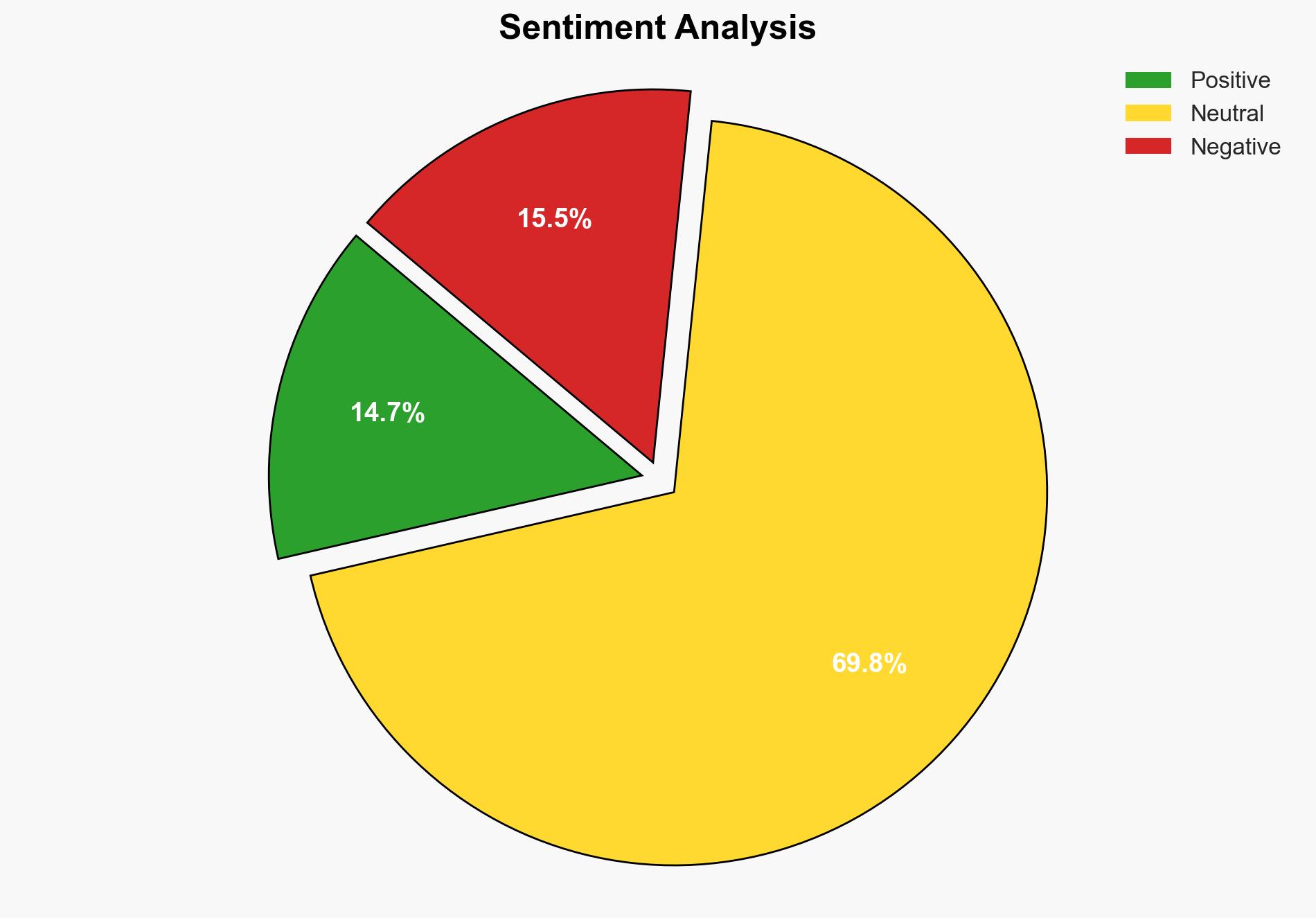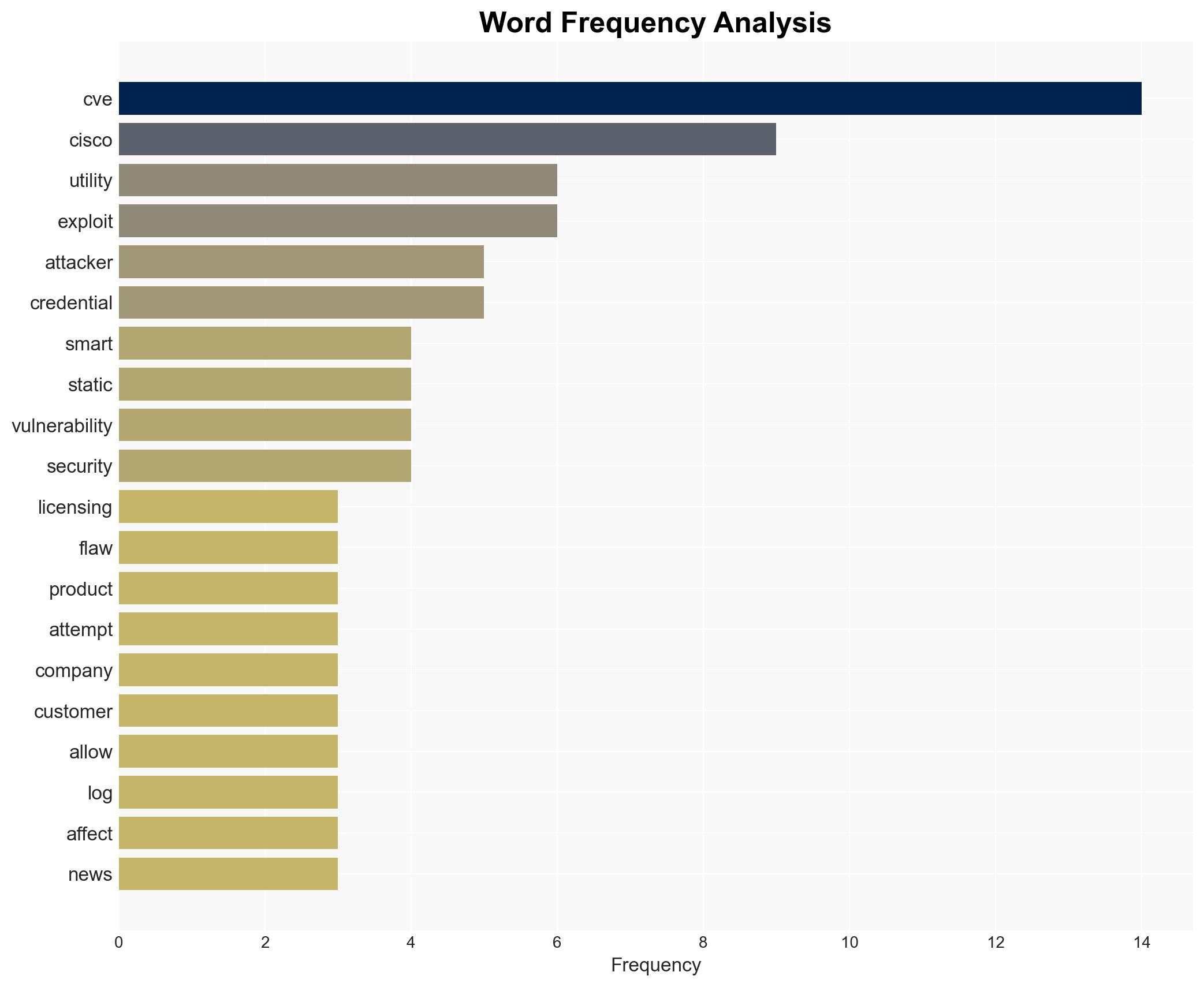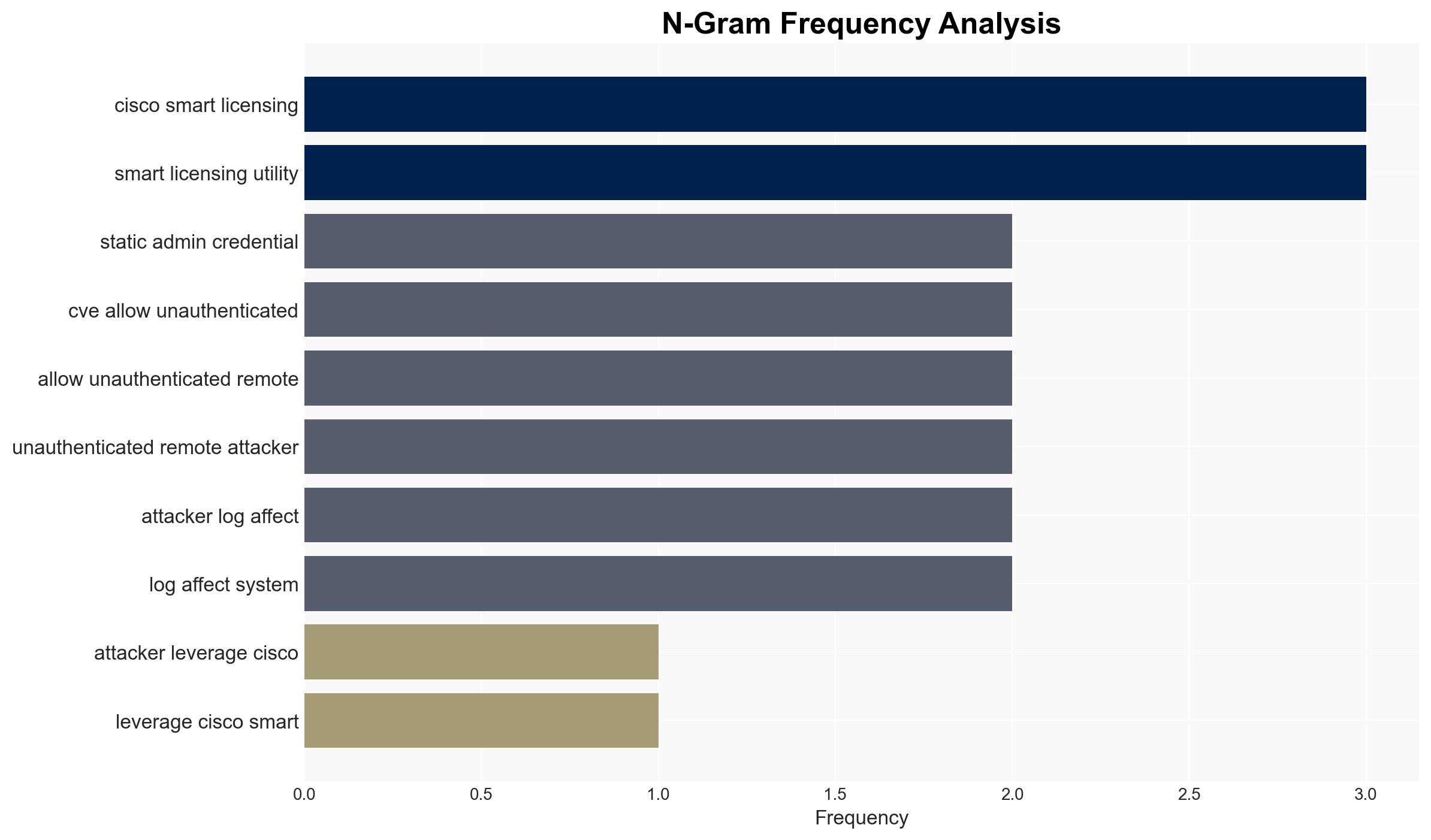Attackers are leveraging Cisco Smart Licensing Utility static admin credentials CVE-2024-20439 – Help Net Security
Published on: 2025-04-03
Intelligence Report: Attackers are leveraging Cisco Smart Licensing Utility static admin credentials CVE-2024-20439 – Help Net Security
1. BLUF (Bottom Line Up Front)
Attackers are actively exploiting a vulnerability identified as CVE-2024-20439 in the Cisco Smart Licensing Utility, which involves static administrative credentials. This vulnerability allows unauthenticated remote access to affected systems, posing significant risks to organizations using this utility. Immediate action is recommended to mitigate potential threats by upgrading to the latest software version provided by Cisco.
2. Detailed Analysis
The following structured analytic techniques have been applied for this analysis:
General Analysis
The vulnerability CVE-2024-20439 in the Cisco Smart Licensing Utility has been confirmed by CISA as being actively exploited. The flaw allows attackers to gain administrative access using static credentials, which can lead to unauthorized data access and system control. Cisco has released a security advisory and a software update addressing this issue, urging customers to upgrade immediately. The vulnerability was disclosed in early September, and exploitation attempts have been observed since then.
3. Implications and Strategic Risks
The exploitation of CVE-2024-20439 poses several strategic risks:
- National Security: Potential unauthorized access to sensitive systems could compromise national security operations.
- Economic Interests: Exploitation could lead to financial losses for organizations due to data breaches and system downtimes.
- Regional Stability: Widespread exploitation could destabilize critical infrastructure, affecting regional stability.
4. Recommendations and Outlook
Recommendations:
- Organizations should immediately upgrade to the latest version of the Cisco Smart Licensing Utility to mitigate the vulnerability.
- Implement additional security measures such as network segmentation and enhanced monitoring to detect unauthorized access attempts.
- Consider regulatory changes to enforce stricter cybersecurity standards for software vendors.
Outlook:
Best-case scenario: Organizations promptly apply the necessary updates, significantly reducing the risk of exploitation.
Worst-case scenario: Delayed response leads to widespread exploitation, resulting in significant data breaches and operational disruptions.
Most likely outcome: A majority of organizations will update their systems, but some may still experience breaches due to delayed action or incomplete mitigation.
5. Key Individuals and Entities
The report mentions Johanne Ullrich and Nicholas Starke as significant individuals involved in identifying and reporting the exploitation attempts. The Cisco Product Security Incident Response Team (PSIRT) is also highlighted for their role in addressing the vulnerability.





